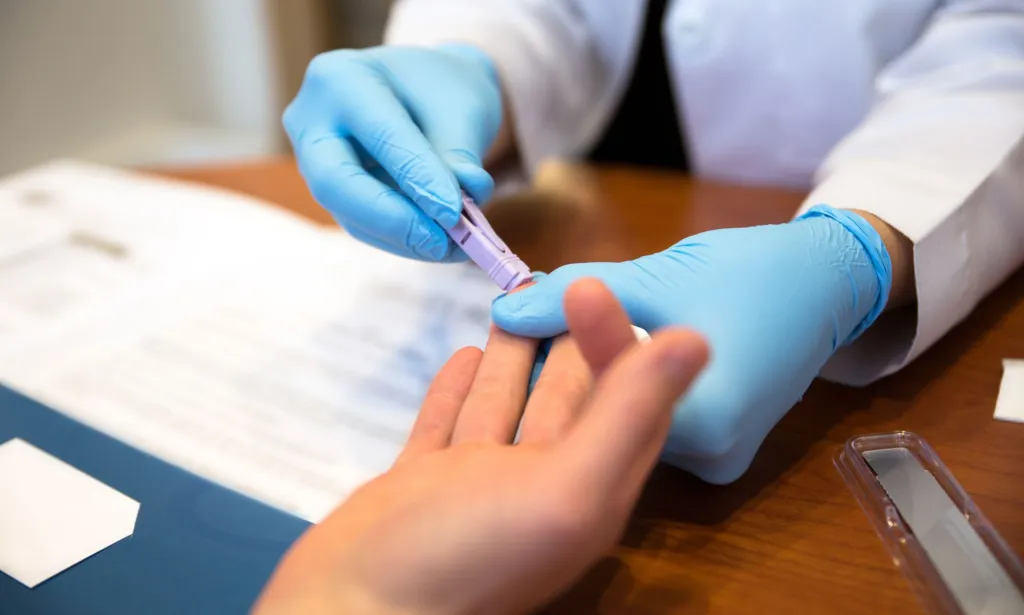Research shows 10 million Brits would not work or be friends with someone HIV+

10 million Brits would wouldn’t work with or be friends with someone who is HIV+. (Newfoundland Diagnostics)
Shocking new research has uncovered that a whopping 10 million Brits would avoid being friends with or working with someone who was HIV+.
The damning research by Newfoundland Diagnostics – the UK’s leading provider of self-diagnostic tests – comes just ahead of World AIDS Day on 1 December and proves that the UK is still living in ignorance when it comes to HIV.
Research, conducted earlier this month in collaboration with Censuswide determined that 10 million Brits would not work with a person who was HIV+ (15 per cent) or be friends with someone who was HIV positive (14 per cent).
Part of that might be down to the fact that so many Brits are still ignorant of how HIV can be transmitted.

For example, research found that nine per cent of those surveyed believe HIV can be passed by drinking from the same glass, and seven per cent believe it can be passed from sharing eating utensils.
Newfoundland Diagnostics found that the top ten ways Brits believe HIV can be transmitted are as follows:
- By having unprotected sex – 62 per cent
- Giving or receiving oral sex – 44 per cent
- Kissing someone – 14 per cent
- Drinking from the same bottle or glass – 9 per cent
- Sharing eating utensils – 7 per cent
- Touching a toilet seat – 6 per cent
- Touching a door handle – 6 per cent
- Using the same gym equipment – 5per cent
- Holding hands – 3 per cent
- Hugging someone – 3 per cent
These findings come three decades after the UK Government’s hard-hitting ‘Don’t Die of Ignorance’ campaign, which was launched in 1986 to inform the public about HIV and how it could be spread.
Equally as concerning are the findings that almost four in five people (78 per cent) don’t believe that heterosexual partners could have HIV.
That’s despite data from the UK Health Security Agency (HSA) that proves there have been higher rates of HIV among heterosexual individuals for the first time in a decade.

Commenting on the findings, Frederick Manduca, co-founder of Newfoundland Diagnostics said: “These misconceptions about HIV are deeply troubling and underscore the crucial necessity for comprehensive education and for Brits to know their status.
“With the medical advancements available today in the wake of the AIDS epidemic, we’d hope as a nation to have made significant strides in understanding HIV and those it affects. Unfortunately, these findings reveal a lingering cloud of misinformation that continues to shroud perceptions of HIV.
“By placing easily accessible HIV self-tests on supermarket shelves, we’re offering more than a diagnostic tool; it’s about fostering open conversations, eradicating the stigma still surrounding HIV, and confronting the misconceptions faced by individuals living with HIV.
“This accessibility serves as a prompt to encourage dialogue and education, chipping away at the barriers and misconceptions those with HIV encounter daily.”
How did this story make you feel?

